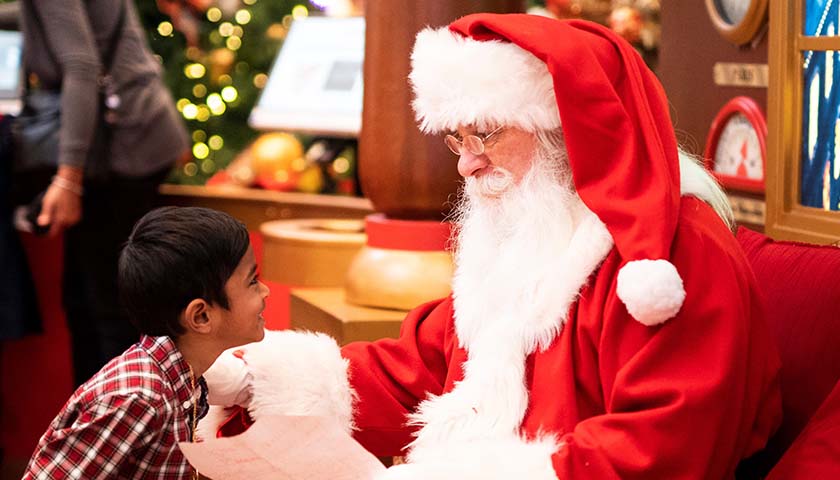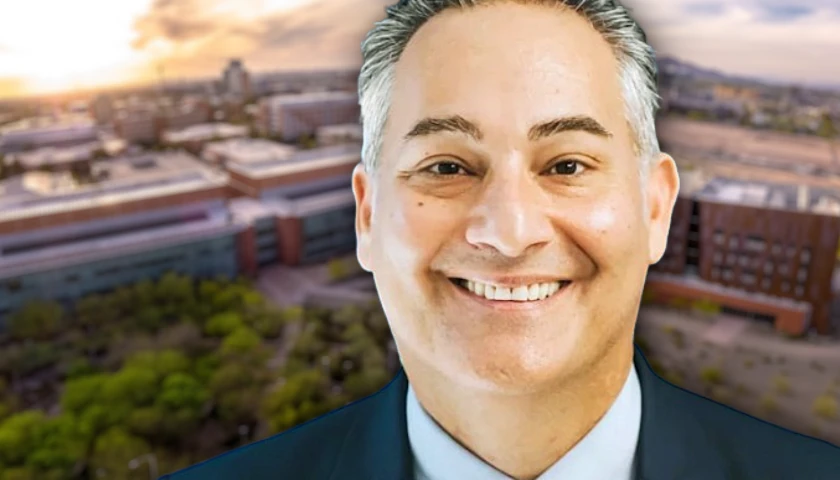by Victor Skinner
A shortage of Santas this holiday season prompted a Pennsylvania state representative to propose a tax credit for those who suit up, as well as the businesses that employ Old Saint Nick.
Rep. Jonathan Fritz, R-Susquehanna, posted a memoranda on the House website this week seeking co-sponsors for legislation he said is aimed at the revelation recently highlighted in media reports.
“After a year of lockdowns and travel restrictions forced Pennsylvanians into not being able to experience the magic of the holiday season last year, the fact that the Santa shortage is occurring this year is especially distressing since some families, employers, and municipalities are returning to pre-pandemic Christmas traditions,” Fritz wrote. “For many, Santa is a critical component of those celebrations.”
Fritz cited a recent report in the Wall Street Journal that explained how a confluence of factors in the tight labor market are creating competition for Santas and driving up hourly rates, primarily concerns about COVID-19 constricting supply and the return of public holiday festivities driving demand.
“Concerns about the virus are still high among a group of workers that skews toward older, heavier-set men, and those in the Santa industry say it is harder than usual to find qualified candidates,” WSJ reported. “The shortage has overwhelmed bookers, sent organizations looking for bearded volunteers and forced some event coordinators to settle for Santa visits in mid-October.”
Fritz wrote that “one estimate has demand for Santas increasing 121 percent this year while the availability of Santas has decreased 10 percent.”
Mitch Allen, founder of Hire Santa, which books Santa gigs for clients across the country, told CNN his company has 10% fewer Santas this year, while demand has more than doubled.
Susen Mesco, who has operated a Denver Santa school for nearly four decades, told the news site demand is at an all-time high, while those willing to sit with children during the pandemic has dropped significantly. Since the start of the pandemic, 120 Santa trainees have dropped out of her Santa school, while others are opting for early retirement.
“The bookings are overwhelming this year,’” Mesco said. “I’m getting calls for a Santa about every eight minutes.”
Fritz is hoping his proposed tax incentive will minimize the impact in Pennsylvania.
“One cannot doubt that this Christmas and holiday season is important for many Pennsylvanians and restored merriment is essential for mental health and general well-being,” the memoranda read. “Santas help create lifelong memories – from photos with children, riding by on a fire truck during a parade, or leading a gift exchange at a work party – and they are an indispensable holiday tradition for many Pennsylvanians.”
Fritz plans to introduce a bill “in the near future” to “provide a modest tax credit for those hiring Santas or Santas working on their own to help offset Santa-related costs.”
“A small, limited Santa tax credit would have a minimal impact on revenues and could lead to increased economic activity as those seeking out Santa-related events will make purchases at small businesses across Pennsylvania,” he wrote.
“It could also go a long way in restoring the holiday spirit at a time when we need it the most.”
Passing the legislation through the General Assembly, however, could take a Christmas miracle, as the state constitution requires consideration in each chamber on three separate session days.
There’s currently only three scheduled session days remaining before Christmas: Dec. 13, 14 and 15.
– – –
Victor Skinner is a contributor to The Center Square.








